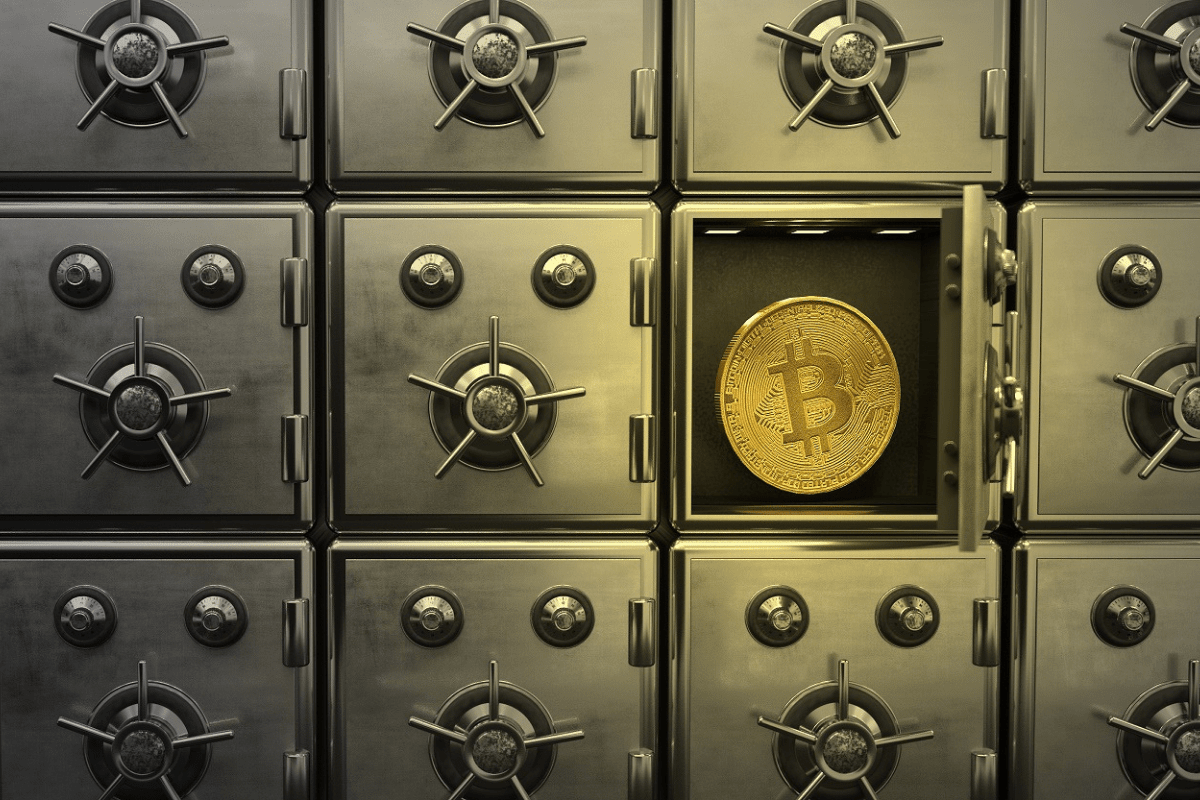Ways to Safeguard Your Bitcoins; ‘Mixing-Service’ Alert
- April 2, 2021
- Jennifer Moore

You bought your BTCs early. You bought them cheap. Also, you were wise enough to hold on to them. Congratulation! You’re now wealthy but concerned. You’re concerned, not because your Bitcoins should fizzle out (That won’t happen!). Your prime concern is safeguarding those coins, for they are valuable. Now, more than ever.
Tips to Safeguard Your Bitcoins
So you start looking at options all over the internet. And the great thing about the internet is that they know everything, and never hold back from pouring out all they know. Now, as per your request, the internet search engine reverted your query with the following alternatives, in somewhat similar order. Here you go:
-
Crypto Exchanges:
You need them when you must convert a few of them for fiat currency. Or exchange your BTC for altcoins (assuming, you’re good at this). Common knowledge is that almost every event of cryptocurrency hack took place at the exchanges. So, even if we’ve built you a really strong framework incorporating a multi-layered security platform, you’d rather we direct you to an online wallet.
-
Online Wallets, Crypto Banks:
Online wallets offer a notch higher security than exchanges. They keep your coins separated from each other, so each account must be separately hacked to gain access to them. Some wallets may offer modest security with two-factor authentication. Yet, they could still become target practice for hackers, since they are online. Crypto banks, additionally offer a string of additional services over the wallets. These include using your Bitcoins as collateral against a loan to accrue interest on your savings accounts and coming with a mesh of security features. Despite that, they involve a substantial surface of risk.
-
Desktop Wallets:
Under normal circumstances, they’d provide high security, unless remotely hacked or information theft by a trojan virus. Installing a desktop wallet on an offline computer leaves you with the only risk of physical theft.
-
Paper Wallet:
when all else fails at assurance, revert to a leaf off your old diary to scribble the characters of your private key. This offers the strongest possible security with the only risk of you losing the chit, an event in which you potentially lose all of your coins. So it’s best to keep the chit in a fire-safe deposit box and save a backup copy in a bank locker box and remember, either of the locations.
Also Read: Crypto Asset Custody: A Failsafe Solution for Financial Investors
When you’re still not satisfied, you research deeper and you come across a snazzy-sounding website that promotes itself as the safest possible alternative. In poorly constructed sentences they begin ranting about the half-baked feature of anonymity and the nature of Bitcoins that can easily give out your personal information. Bitcoins do not reveal the personal details of their owners however, they can often be linked to real-world entities. While withdrawing crypto from an exchange, you have to identify yourself. Hence the exchange is aware of your withdrawal address. So the next time the coins move, the users are at risk of revealing much of their personal information.
There are of course the higher techniques of Blockchain Analysis that reveal the address and information of the person linked to the bitcoin.
Enter the Mixing Service
Mixing Services are used to mix coins up to further obscure their ties to the real-world entity. Different methodologies and techniques have evolved over the years to make it more difficult to trace the coin to its owner. Some of the popular mixing methods are Centralized Mixing and Chaumian CoinJoin Mixing.
Going further down the document of valuable information written in poorly constructed phrases, you finally come to the place where they tell you how to locate them. And it’s easy as a pie, all you need is to seek the index page of the site using a Clearnet or TOR browser.
Wait. What?
The Onion Routing or TOR enables you to browse through the Dark Net. You may want to stop right here and return to the Paper Wallet section after this.
Conclusion
Mixing service or cryptocurrency tumbler is used in cases of large quantity coins, mainly of potentially identifiable or tainted origin, to further obscure their sources. Prominent personalities have voiced their concerns over the illicit use of such services, with many demanding they be “criminalized”.
Categories
- AI (6)
- Altcoins (10)
- Banking (10)
- Bitcoin (132)
- Bitcoin ETF (11)
- Bitcoin Price (30)
- Blockchain (47)
- Brokering World Hunger Away (16)
- Business (7)
- CBDC (11)
- COVID-19 (3)
- Crypto ATMs (1)
- Crypto Banking (15)
- Crypto Bill (1)
- Crypto broker platform (26)
- Crypto Investment (3)
- Crypto Markets (3)
- Crypto Payment (26)
- Crypto Prices (1)
- Crypto Trading (88)
- Cryptocurrency (365)
- Cryptocurrency Exchange (95)
- Data Visualization (2)
- Decentralized Finance (7)
- DeFi Payment (9)
- DEX (3)
- Digital Currency (22)
- Ethereum (2)
- FAQ (6)
- Finance (24)
- Financial Equality (4)
- Financial Freedom (8)
- Forex (24)
- ICO (1)
- Investment (11)
- Mining (3)
- News (64)
- NFTs (2)
- P2P (1)
- PayBitoPro (606)
- PayBitoPro Coin Listing (6)
- PayBitoPro Exchange (2)
- Post COVID Digital Transformation (1)
- Press Release (130)
- Privacy & Security (3)
- Real Estate (1)
- Stablecoin (4)
- Technology (14)
- Uncategorized (2)
- US Presidential Election (2)
- Utility Coin (1)
- Web3 Wallets (1)
- White Label Crypto Broker Solution (1)
- White Label Crypto Exchange (6)





